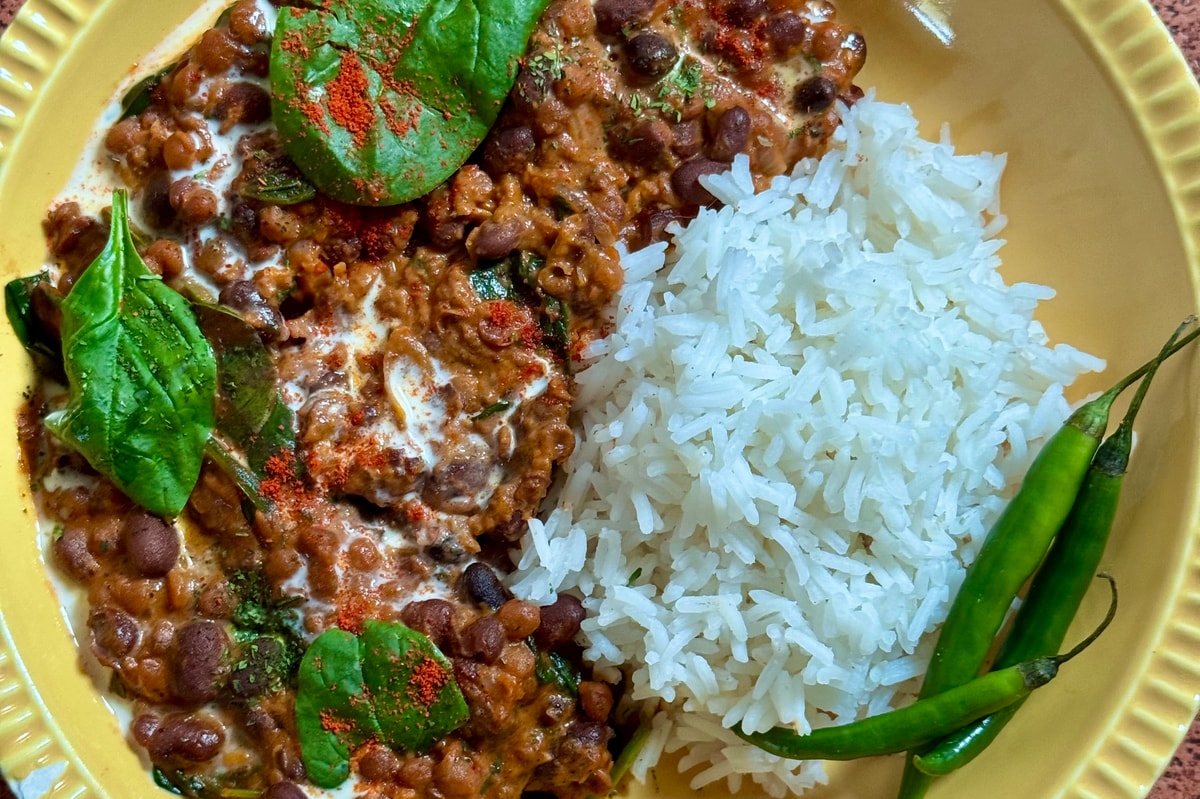Wat is de rol van Ayurveda in het Westen?
Een interview met Sebastian Pole, co-founder van Pukka, over het belang van kruiden en specerijen en de rol van Ayurveda in onze moderne Westerse maatschappij.
Hoewel het uitleggen van Ayurveda een hele uitdaging kan zijn, kunnen we het heel goed illustreren aan de hand van een kop Pukka-thee. De biologische theeproducten zijn gemaakt en geïnspireerd op belangrijke Ayurvedische principes en ondersteunen lichaam, geest en ziel. Hoewel Sebastian geen klassieke Ayurvedische arts is, of een 'vaidya', zoals ze officieel worden genoemd, heeft hij zeven jaar formele studie in Ayurveda, Chinese geneeskunde, kruidengeneeskunde en yoga - samen met meer dan 20 jaar klinische praktijk. Lees verder om meer te leren over Pukka, het belang van kruiden en hoe Ayurveda past in ons drukke moderne dagelijkse leven.
** Dit interview is een directie kopie (Engels artikel) van het origineel, geschreven door Eva voor Delight Yoga.
How did you ‘find’ Ayurveda?
‘I first directly experienced the healing power of plants when I was eighteen. I had been travelling in India and had a terrible bout of ‘Delhi belly’. An Ayurvedic doctor gave me a simple mixture of liquorice root, Shatavari root, and amla fruit to take. It cleared me up in a few days and I immediately wanted to find out how the blend had worked. Ever since, I have spent my life dedicated to learning about herbs, as well as sharing my knowledge and inspiration. I can’t help but want to learn more about plants and our relationship with them. This is where my inspiration stems from when I’m creating herbal blends. I have been involved in the sourcing of organically grown herbs and in making delicious herbal teas and remedies for over two decades and that really has been the most rewarding journey for me.’
What is the biggest gift that Ayurveda can give us in our modern-day lives?
‘Ayurveda is translated as ‘knowledge of life’ and encompasses the idea of how to live wisely. Despite its simplicity, Ayurveda is complete as a medical system because it deals with not only treatment and management of diseases, but with health in all its aspects, and I think this is its most important teaching. Ayurveda’s time-honoured system of health guides us with its profound insights along a path that leads us from the stresses and ills of life to a place of peace and health. It teaches us the language of nature and appreciation of life by showing how we can empower ourselves as individuals. It understands that our own health cannot be considered as separate from that of our family, work, society, and planet. In other words, Ayurveda works with real, deep, integrated health. A description given in the Charaka Samhita, an early Ayurvedic text, notes: ‘It is called Ayurveda because it tells us which substances, qualities and actions are life-enhancing and which are not.’ It enables us to articulate and describe our experiences in a way that is consistent, coherent, and tangible, so we can relate to others. And in this time of a climate and biodiversity emergency, what could be more important than finding a way to follow a path of dharma that upholds and supports life?'

Many people understand the basic philosophy of Ayurveda but say: ‘How am I ever going to apply all of this in my Western life? There’s so much to think about.’ What would you tell them?
‘Because Ayurveda is formed from interwoven ideas on nature and life, some of its teachings may seem prescriptive: how to live, when to get up, what to eat, and what not to eat. But actually, Ayurveda has nothing to do with rules and restrictions; it is about offering you insights into how you can fulfil your potential based on your own choice. For me, early on in my teaching, one of my teachers said: ‘The first rule in Ayurveda is that there are no rules’. From a modern perspective, I would say: don’t try and follow everything Ayurveda says. The best thing to do is to follow the basics that you can easily include every day. Go back to the rhythms of nature and follow the basic principles of dosha, dhatu, mala and how this integrates with your daily rhythm or ‘dinacharaya’.
Where do herbs come from? In Ayurveda versus Western herbalism.
‘Ayurveda is a holistic system of medicine that sees the different dimensions of spirit-consciousness-mind-body as one continuum. Its teachings use a blend of herbal medicine, massage, nutrition, spiritual insight, practical experience, scientific analysis, and artistic creativity to guide us to a balanced and fulfilled lifestyle. At its root is its focus on the uniqueness of each individual. As such, it is a universal system applicable to every individual living in any part of the world – personal medicine at its best.'
What is your view on the importance of traditional medicine?
‘I have visited hundreds of organic farms and wild-collection communities over the years and witnessed again and again how farming organically can bring immeasurable benefit to people, plants, and the planet. I have travelled far and wide to find herbs that are the best they can be. And, in among the hullabaloo and chaos of life, I have felt inspired and encouraged by some incredible farms, enthusiastic farmers and remarkable herbs. Back in my clinic, these plants transform people’s lives by bringing them greater health and vitality.
I have seen the breathless breathe, the sleepless sleep and the exhausted become re-energised. These transformations are testament to the healing-synergy we have with plants and show us that traditional medicine can really help us balance our health and support us as we journey through life.'

'Ayurveda teaches you to look after your constitution, so your cup is full and when it’s full your abundant energy can overflow so to be shared with and to serve others'
What are your favourite summer herbs and why (for this Pitta season)?
‘Pitta is the dosha most affected by the summer season because this is the time of year with the highest levels of heat due to the fire element being ascendant. It can be very easy for Pitta to run out of control on a hot sunny day. Foods with a sweet, bitter and drying taste are generally considered to be more cooling in their nature. Avoid foods that generate heat such as spicy, salty and sour foods. Keeping yourself topped up with cooling liquids such as aloe vera juice, rose waters and cool teas including herbs such as peppermint, licorice and chamomile are perfect. And we shouldn’t forget that Shatavari's soft, bitter-sweet, cooling properties are the perfect antidote to the drying-heat of Summer.
‘The best pitta herbs are those that are typically cool in nature and help the liver’s natural cleansing role. Many of nature’s greenest foods, such as grasses like chlorella, spirulina, and wheatgrass, are excellent detoxifiers that will help cleanse the body of excess heat, along with some of Ayurveda’s most powerful inflammation soothing plants such as neem and brahmi.'
What’s the magic of Ayurveda?
‘There’s this saying of ‘being selfishly wise and being wisely selfish’ - which is about looking after yourself so you are well enough to look after others – and looking after others so they are well enough to look after you. Ayurveda teaches you to look after your constitution, so your cup is full and when it’s full your abundant energy overflow to be shared with and to serve others. In the end it’s about love. Loving yourself and life so much that you dedicate your life to the practice of service.’
Ayurveda is slowly becoming more mainstream. Does the future look bright to you?
‘As a practitioner of Ayurveda, I am well versed with its benefits, and yet acknowledge some of the controversies surrounding this system of health. The future of Ayurveda for me really depends on the global Ayurvedic community and how we form alliances and connect with other medical and herbal organisations, patient groups, research and education. The success of Functional Medicine is something that really interests me. It determines how and why illness occurs and restores health naturally by addressing the root causes of disease for each individual. Ultimately, its Ayurvedic principles combined with western medicine and this more holistic medical thinking is something that will really come to the fore over the coming years.'
'The potential impact of Ayurveda in our modern society rests on its basic principles and unique concept of health – it is a way of being that helps us to evolve as humans and to fulfil our potential. For me, that’s a beautiful thing to be able to share, and wonderful to experience.’
Benieuwd hoe anderen Ayurveda in hun Westerse leven toepassen? In onze rubriek 'Mijn Ayurveda' lees je over hun routines, remedies, struggles én gouden tips.







